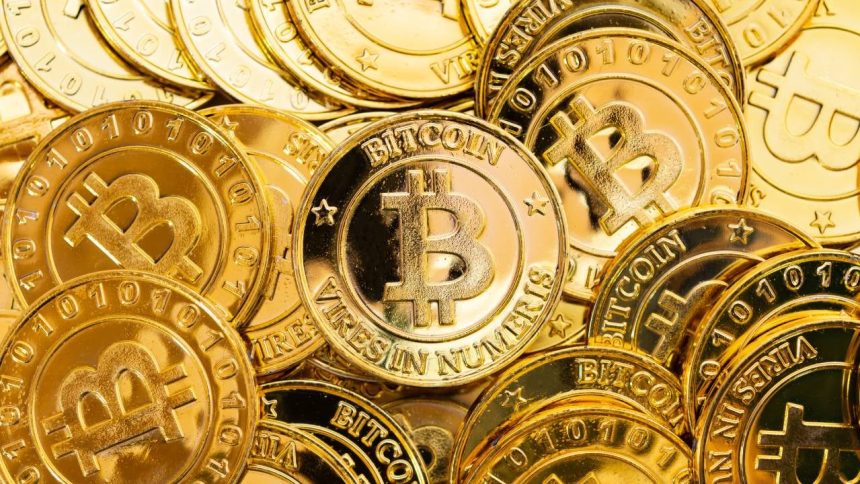Spot Bitcoin exchange-traded funds (ETFs) are among the newer entrants to the world of Bitcoin trading, joining Bitcoin futures ETFs, which have been trading since 2021. While both funds let traders wager on the price of Bitcoin cryptocurrency, they’re tremendously different in how they do so — and this difference has a vital impact on the funds’ performance.
Here’s how spot Bitcoin ETFs and Bitcoin futures ETFs work and what you need to know.
Spot Bitcoin funds vs. Bitcoin futures funds
Here’s an overview of some key differences in spot Bitcoin ETFs and Bitcoin futures ETFs.
How do spot Bitcoin ETFs work?
Like all exchange-traded funds, spot Bitcoin ETFs own an underlying asset, in this case Bitcoin. These funds purchase and store bitcoins, which comprise substantially all of the fund’s assets. As new money comes into the fund, the fund’s managers go out and purchase more bitcoins to hold. This type of Bitcoin ETF began trading in January 2024, following approval from the Securities and Exchange Commission.
This structure means that the funds track the actual price movement of Bitcoin closely. If Bitcoin rises by 10 percent, these funds will rise 10 percent, less any management fees. From an investor’s perspective, this ability to effectively track the price of Bitcoin is key, because it offers a way to effectively own the asset via the fund without having to purchase Bitcoin itself.
So if you want the price performance of the cryptocurrency and don’t want to work with a crypto exchange, a spot Bitcoin ETF can be a great idea. Plus, you won’t need to deal with the hassle of safely storing your own crypto, because the fund company does all that (part of why you’re paying the management fee). And you get the peace of mind that security is someone else’s job.
The best Bitcoin ETFs tend to charge low fees, and they’re easy to buy. You can even buy a fraction of a Bitcoin ETF share if you work with the best brokers for fractional share investing.
How do Bitcoin futures ETFs work?
Bitcoin futures ETFs don’t own the cryptocurrency directly, but instead own futures contracts on the crypto, trying to ride the returns of the world’s largest cryptocurrency. Futures are a standardized contract in which a seller promises to deliver a certain number of bitcoins to the contract’s buyer on a specific day. The buyer puts up part of the contract’s total value to purchase the contract, and may be required to add more money over time if Bitcoin declines.
The manager of the Bitcoin futures ETF is doing all this work on behalf of the fund’s investors, and the actual investment returns are reflected in the growth of the fund’s net asset value.
Because futures ETFs don’t own Bitcoin directly, only futures on it, a fund’s performance often does not closely track the price of Bitcoin. While Bitcoin futures may be moving the same way as Bitcoin prices, they can fluctuate much more than Bitcoin, which itself is notably volatile.
This tracking error can be a significant drawback for traders who want a fund to perform like the underlying asset itself. On top of this, specialized ETFs such as these tend to charge higher management fees, making them less attractive than lower-cost, non-leveraged funds.
What are the pros and cons of spot Bitcoin ETFs and Bitcoin futures ETFs?
Bitcoin ETFs offer a handful of advantages and disadvantages to cryptocurrency traders.
Advantages of Bitcoin ETFs
- Access to Bitcoin directly: Spot Bitcoin ETFs own Bitcoin directly, meaning that every share of the fund correlates to some amount of the crypto that is held in custody. The Bitcoin holdings are effectively just held in a “fund wrapper” that allows easier access.
- Low fees: Spot Bitcoin ETFs charge low expense ratios, and they do the heavy lifting of purchasing and securing their Bitcoin holdings. In many cases, it’s cheaper to buy the fund and pay the fees for a year than to pay commissions to buy Bitcoin yourself.
- Track Bitcoin’s price movements accurately: Spot Bitcoin ETFs closely track the performance of Bitcoin, making them an excellent way to own the cryptocurrency.
- Liquidity: Spot Bitcoin ETFs and Bitcoin futures ETFs may make it easier to buy and sell the crypto because they increase the liquidity of the market.
- Easier access on the stock exchange: Both spot Bitcoin ETFs and Bitcoin futures ETFs are traded on stock exchanges, making it easier for traditional investors to buy and sell them. Previously, traders would need to set up accounts with crypto exchanges.
- Greater security: Fund management companies take care of the issue of securing Bitcoin and its futures so that they cannot be stolen.
Disadvantages of Bitcoin ETFs
- Tracking error: Because they use financial derivatives, Bitcoin futures ETFs may not track the price of Bitcoin well.
- Inefficiency: Closely related to tracking error, Bitcoin futures ETFs have to roll their contracts when they expire in order to maintain their exposure to the cryptocurrency. This could occur at times when the prices are unfavorable and also creates transaction costs.
- No direct Bitcoin ownership: Bitcoin futures ETFs do not own Bitcoin directly but instead trade financial derivatives known as futures to earn their returns. If you want to own Bitcoin directly in a fund, you’ll need to own a spot Bitcoin ETF.
- No self-custodying: The fund companies hold all the investments, so those who view the ability to self-custody their Bitcoin as a better alternative will be out of luck. Some see self-custody as a safer alternative due to the potential for hacking and theft.
Other kinds of Bitcoin ETFs
Traders have other kinds of Bitcoin ETFs if they want to make leveraged bets on the price appreciation of Bitcoin. For example, they could trade leveraged Bitcoin funds that aim to go up twice or three times what Bitcoin does in a single day. These funds use financial derivatives to manage these funds and the costs tend to be much higher than spot Bitcoin ETFs.
Despite their targets, these funds often have huge “tracking error,” which is how far the fund deviates from its expected performance, typically due to its structure. And traders have still other ways to to ride up the price of Bitcoin and make even higher returns, but they’re even riskier than the digital currency. Here are five potentially higher-return ways to trade Bitcoin.
Bottom line
Spot Bitcoin ETFs achieve nearly the same price performance of Bitcoin and do so at a low price, making them an ideal solution for those who want the ease of an ETF. In contrast, Bitcoin futures ETFs may not actually track the price of the crypto and may have larger fees and other issues. So the advent of spot Bitcoin ETFs lets traders feel like they’re almost trading Bitcoin.
Editorial Disclaimer: All investors are advised to conduct their own independent research into investment strategies before making an investment decision. In addition, investors are advised that past investment product performance is no guarantee of future price appreciation.
Read the full article here
















